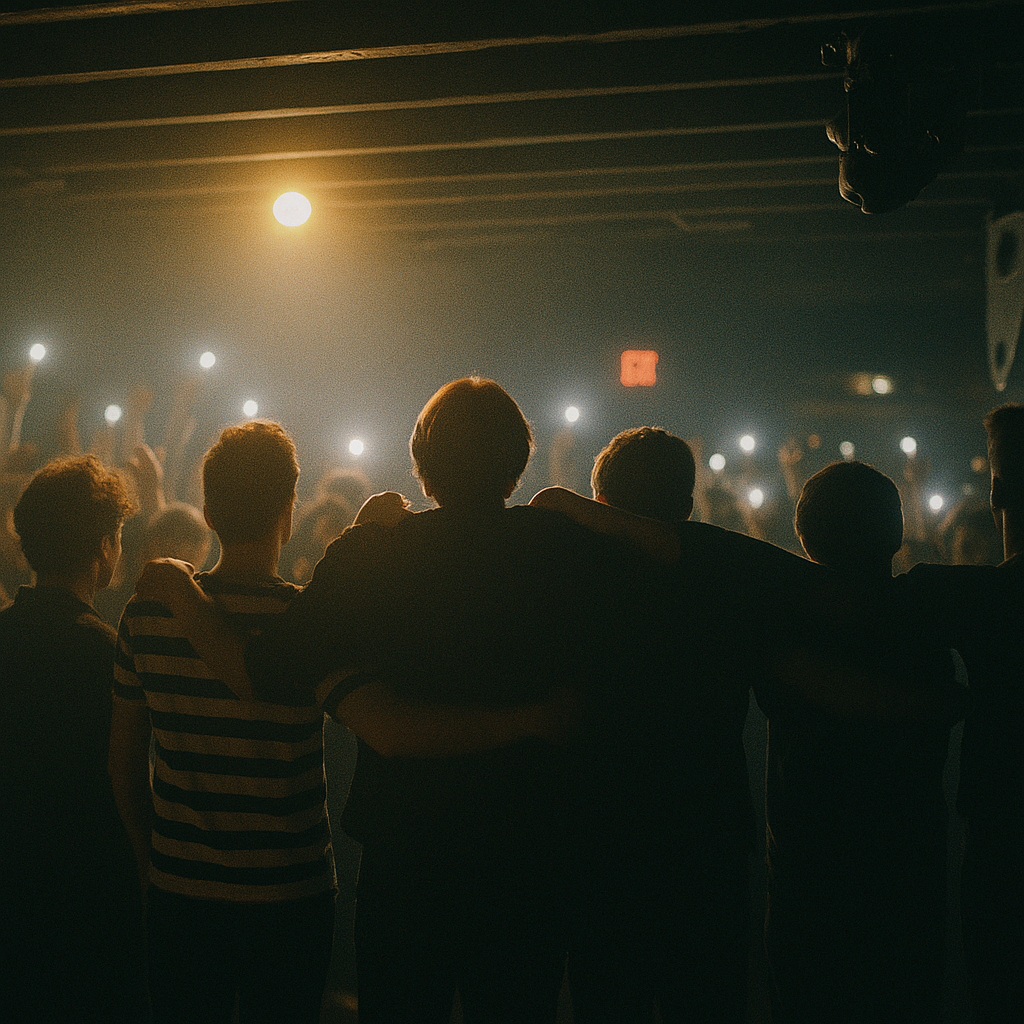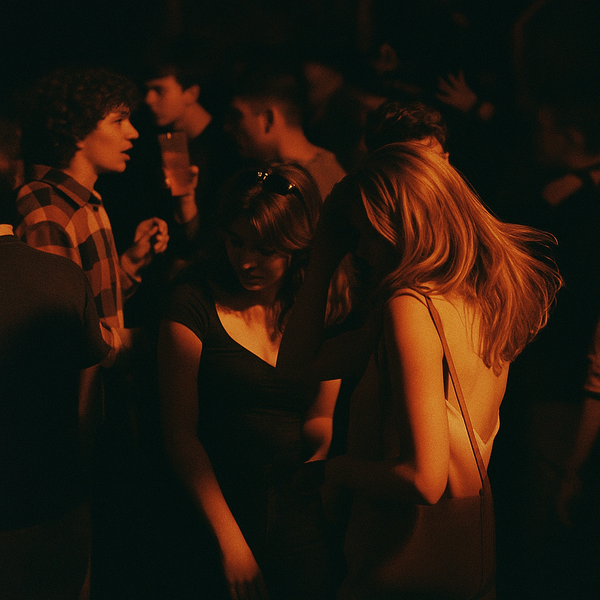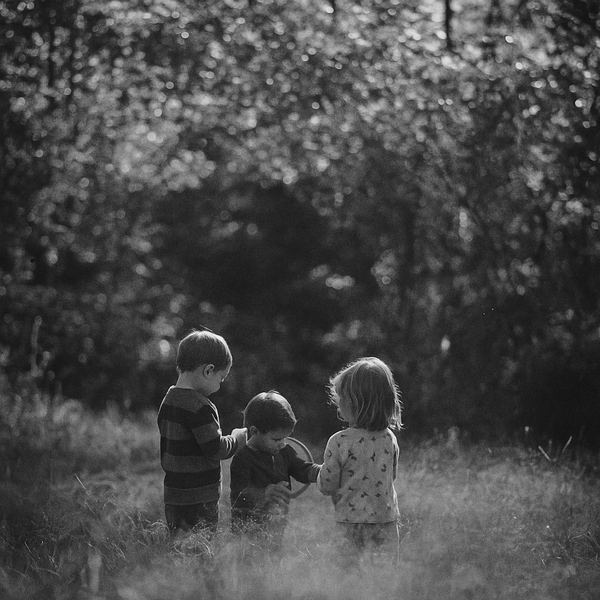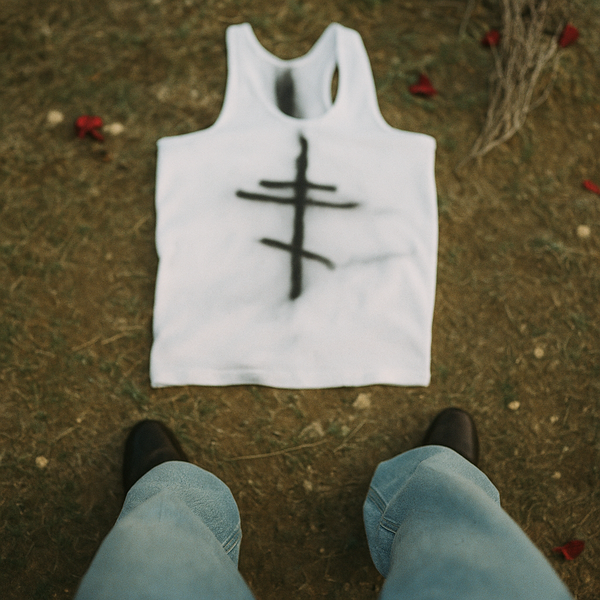Why Small Venues Are the Last Bastions of Rock's Raw Soul

The best rock and roll I ever heard wasn't at Madison Square Garden or some corporate-sponsored amphitheater with $18 beers and VIP sections. It was at a 200-capacity shithole in Detroit where the ceiling leaked, the PA system had more feedback than a Twitter argument, and the bartender poured doubles because he liked your face. That's where rock lives—not in algorithms or arena shows, but in rooms small enough that the sweat from the ceiling drips on your head while some band you've never heard of changes your life.
Idlewild gets this. The Scottish rockers, who've been kicking around since 1995 without ever selling their souls to the gods, just announced their first album in six years with a rallying cry that sounds like it was recorded in one of those beautiful dumps. "Stay Out of Place," the lead single from their upcoming self-titled album, isn't just a song—it's a manifesto for every band that refuses to trade their Marshall stacks for MacBooks.
The Corporate Machine vs. The Human Heart
Here's what the suits don't understand: rock and roll was never meant to scale. It was meant to explode in your face at close range. When Roddy Woomble and company announced their 2025 UK tour, they didn't book the O2. They booked real venues—the kind where the stage is three inches high and you can smell the drummer's cigarettes between songs. These are conscious choices by a band that's watched the industry turn into a Silicon Valley startup pitch.
The streaming economy wants everything quantified, optimized, playlist-ready. Small venues are the antithesis of this bullshit. They're inefficient, uncomfortable, and absolutely essential. They're where bands learn that a broken string mid-song isn't a disaster—it's an opportunity. Where crowds aren't audiences but co-conspirators. Where the only algorithm that matters is whether you can make 150 people forget their mortgages for 45 minutes.
Sam Fender's Beautiful Contradiction
Even the kids who make it big know where home is. Sam Fender, who's selling out arenas faster than you can say "industry plant" (though he's not one), just raised over £100,000 for small UK venues during his arena tour. Think about that contradiction for a second—a guy playing to thousands, passing the hat to keep the 200-capacity rooms alive. That's not charity; that's understanding that without those small rooms, there's no Sam Fender. There's no anybody.
"These places are legendary," Fender said about the small venues his fund supports. Not "were legendary." Are. Present tense. Still breathing, still bleeding, still mattering.
Idlewild's October Revolution
When Idlewild drops their self-titled album this October, it won't trend on TikTok. It won't have a viral moment. What it will have is something rarer than a vinyl pressing that doesn't skip: actual songs written by actual humans for other actual humans. The band's been at this for nearly three decades, watching the industry transform from something that occasionally gave a damn about art into a metrics-obsessed content farm.
Their new single doesn't sound like it was focus-grouped or written to game Spotify's algorithm. It sounds like five guys in a room, making noise that matters to them, hoping it matters to you. That's the transaction rock was built on—not data points and engagement metrics, but the ancient agreement between performer and witness: "We'll bare our souls if you'll listen with yours."
The Economics of Soul
Here's the dirty math nobody wants to discuss: small venues lose money. They survive on bar sales, door deals that barely cover the sound guy, and the stubborn refusal of owners who'd rather go broke than book cover bands. The corporate music industry looks at these places like they look at vinyl—quaint, inefficient, ripe for disruption.
But you can't disrupt communion. You can't optimize the moment when a guitar solo hits so hard that everyone in the room levitates for three seconds. You can't scale the intimacy of 200 people singing along to a song that saved their life when they were seventeen and stupid.
The Resistance Lives in 200-Capacity Rooms
Every small venue that closes is a church burning down. Not because rock and roll is religion—that's the kind of pretentious bullshit that killed prog—but because these rooms are where culture happens at human scale. Where bands learn to read a room instead of reading analytics. Where mistakes become legends and legends become Tuesday night regulars.
Idlewild's return isn't just another album cycle. It's a reminder that resistance to the algorithmic apocalypse doesn't require manifestos or movements. It requires showing up. To small venues. To record stores. To anywhere music is still made by humans for humans, where the only feedback that matters comes from amplifiers, not engagement metrics.
The corporate titans want you to believe that bigger is better, that progress means arenas and streaming numbers that look like phone numbers. But rock and roll's soul isn't in the numbers. It's in the rooms small enough that when the singer spits, the front row feels it. It's in venues where the bathroom graffiti is more honest than any Pitchfork review. It's in places where bands like Idlewild can still matter, not because they're trending, but because they're true.
So when October comes and Idlewild's album drops, don't stream it first. Find a record store. Buy the vinyl. Then find the smallest, dirtiest venue in your city and see whoever's playing. Doesn't matter who. What matters is being there, in the room where rock's soul still breathes, still sweats, still lives.
Because if we lose these rooms, we don't just lose venues. We lose the last honest spaces in a dishonest industry. We lose the places where music is made, not manufactured. We lose the soul of rock and roll, and no algorithm can ever bring that back.
References
- https://www.nme.com/news/music/idlewild-announce-first-album-in-six-years-with-soul-stirring-single-3876708
- https://www.nme.com/news/music/idlewild-announce-2025-uk-headline-tour-dates-buy-tickets-3844928
- https://www.musicradar.com/artists/shows-festivals/these-places-are-legendary-sam-fenders-arena-tour-raises-over-gbp100-000-for-uks-small-venues
- https://www.loudersound.com/bands-artists/idlewild-new-album-first-single-stay-out-of-place
- https://www.v2benelux.com/news/idlewild-releases-new-album
- https://www.gettothefront.co.uk/idlewild-announce-first-album-in-six-years
- https://whynow.co.uk/read/idlewild-new-album-stay-out-of-place-2025
- https://music.mxdwn.com/2025/07/07/news/idlewild-announce-new-self-titled-album-for-october-2025-release-shares-new-single-stay-out-of-place
- https://www.bbc.com/news/articles/cz08jpg9181o?at_medium=RSS&at_campaign=rss
Models used: claude-opus-4-1-20250805, gpt-image-1




